How Long Does Rehab Last for Drug and Alcohol Addiction?
Quitting “cold turkey” after heavy and long-term use can be risky, even life-threatening because alcohol withdrawal can cause intense symptoms. Mood swings and physical discomfort will usually subside within two weeks after you stop using marijuana. Because marijuana impairs your brain, it takes about four weeks to completely regain all brain functions.
Relapse Prevention
Choosing to go through withdrawal in a supervised detox sober house facility ensures you get through the process as safely and comfortably as possible, setting you up for long-term recovery. Since addiction recovery can be somewhat self-defined, what factors impact the length of addiction recovery? Everyone has a different personality and backstory, but the following elements could play a role. Recovering from alcohol addiction does not take a specific or uniform amount of time.
When you enter recovery, you will learn that there is more to it than just getting sober. After the detox is completed, that’s when you enter the treatment phase. Treatment is where you learn how to change the way you respond to the stimuli that can trigger cravings. The detox process can take anywhere from five days to four weeks, and just depends on how severe the SUD is. The longer you used the substance and the more that was consumed on a regular basis, the longer the detox. In most cases, especially for more advanced SUD, withdrawing from a substance should be monitored by medically trained experts.
Alcohol Withdrawal: Symptoms, Timeline, & Treatment
During the next few months, people may still feel symptoms such as anxiety, depression, sleeplessness, irritability, and fatigue. Heroin withdrawal can be very dangerous and even fatal if not done under medical supervision. If you’re seeking help, call our heroin detox treatment center in Port St. Lucie, Florida. Discover more about drug withdrawal timelines and gain insights into what you can expect at each phase of detox.
Joe and Sarah’s journey from recovery at Providence Projects to founding a rehab centre in Sierra Leone
- Detoxification, or “detox” for short, is the process of ridding your body of harmful substances.
- Contact us today to find out which program might be right for you, or to begin the process of arranging for treatment.
- The time frame for detoxing from drugs may differ depending on a person’s age and health.
- Withdrawal symptoms from barbiturates start within a day or less.
- It is common to experience slip-ups or relapse when you quit drinking.
I remember what it was like sitting across from someone thinking there is no way they could ever understand what I was going through. The first step to getting sober is recognizing and admitting that you have a problem with drug or alcohol misuse. It’s difficult to admit that you have lost control over your substance use. Setting realistic goals helps create a sense of purpose and direction in recovery. Goals should be achievable and broken down into smaller steps to avoid feeling overwhelmed.
Withdrawal Symptoms and How They’re Managed During Detox
The acute withdrawal phase typically lasts from a few days to a week, but fatigue and mood swings may continue for several weeks. Most people experience withdrawal symptoms within hours after their last use, peaking around the 3-day mark. These symptoms typically subside within 3 weeks, though some lingering effects like insomnia can persist for longer. Typically, the acute withdrawal phase lasts from a few days to a week. However, the full detox process can take several weeks or even months depending on how much you were drinking.
This holistic approach not only aids in overcoming addiction but also helps individuals build the skills needed to maintain sobriety in the long term. We publish material that is researched, cited, edited and reviewed by licensed medical professionals. The information we provide is not intended to be a substitute for professional medical advice, diagnosis or treatment. It should not be used in place of the advice of your physician or other qualified healthcare providers.
The effects of alcohol abuse on the brain can be long-term, and it is important to be patient with yourself. South Shores Recovery provides detox for acute withdrawal, which can help you get through this difficult initial stage of alcohol addiction recovery safely. Many rehab centers will provide programs that are 30 to 90 days or longer, depending on individual factors, to provide well-rounded help and support. Now that you know what to expect in each withdrawal phase, it’s time to make the call to start your new life. We are waiting to help you become your true self, free from drugs and alcohol.
The tapering process works by the doctor slowly decreasing the amount of “substitute drugs” the client is getting. As the administration of drugs decreases, so does the client’s reliance on their drug of choice. From a time perspective, a tapering program might take as long as a month to work its magic. Around the start of the second day, the addiction sufferer might experience issues with breathing, blood pressure, and heart rate.
It will help prevent relapse once the formal treatment program ends. And relapse prevention is the main goal of all addiction treatment.4 Treatment provides you with the tools to change your thoughts, emotions, and behaviors around substance use. If you’re not ready or willing to change those behaviors and thoughts, then treatment cannot do what it’s designed to do.
It’s important to remember that recovery from addiction is a lifelong process. You won’t step out of a detox or rehab program cured because addiction isn’t something that can be cured. The first year of recovery is a time for addicted individuals to learn new ways to cope with the new drug-free lifestyle and allow the body to recover from what it has been through. During this time, individuals with addiction learn how to quit drugs or alcohol and not relapse.
- For long-acting forms of the drug, symptoms can be delayed as long as 72 hours until the drug is completely out of one’s system.
- They may also be recommended to assist with opioid withdrawal symptoms.
- Although some people can use marijuana without the substance interfering with their daily lives, the DEA estimates that 30% of people who use the drug have some form of marijuana use disorder.
- A licensed clinician uses this criteria—and more—to determine the likelihood and severity of a substance use disorder and formulate a treatment plan.
- Preventing relapse involves more than just staying away from substances.
- Contact our Ohio addiction recovery center today to find out more about our treatment options.
If you are someone who experiences post-acute withdrawal, it can last for 4-6 months or longer. At United Recovery Project, our holistic approach to addiction treatment centers around addressing and healing the underlying issues at the root of addiction. It is crucial to seek medical supervision when detoxing from inhalants because they can cause life-threatening physical and psychological symptoms. While the muscle aches and nausea lessen, most people still feel tired and worn out. The following heroin withdrawal symptoms typically worsen over the next few days, peaking on day three after the last use.
Engaging in healthy behaviors can help accelerate this process and mitigate PAWS symptoms. It’s essential to get medical help during alcohol withdrawal to manage these symptoms safely. I am a licensed social worker.In my scope of practice I have worked in the areas of mental health and recovery for thirty years. The clients I have worked with in my career have ranged in age from seven to seventy. Growing up in Louisiana with addiction running rampant on both sides of my family. A life away from drugs and alcohol seemed impossible for someone like me.
Why Do People Prefer Longer Drug Rehab Programs?
Alcohol addiction can affect anyone and is considered a chronic condition that changes the way the brain works 2. The first step in the journey to sobriety is acknowledging the presence of a problem and making a firm decision to change. This often involves facing the consequences of addiction and https://yourhealthmagazine.net/article/addiction/sober-houses-rules-that-you-should-follow/ recognizing the negative impact it has had on various aspects of life.
Long-term effects can include improved physical and mental health, but ongoing support may be needed to maintain recovery and prevent relapse. After the first two weeks, acute withdrawal symptoms set in and can stay with the person for two or three months. But the truth for everyone is that the opportunity to take the first step is right now. Contact our Ohio addiction recovery center today to find out more about our treatment options.

